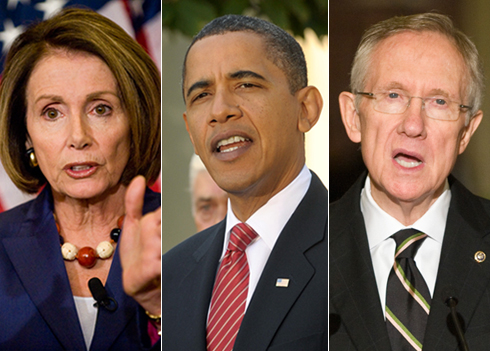Much is known about how Democrats hope to finish off health care reform. Later this week, President Obama will submit yet more proposed changes to the Senate’s health care bill. Those changes–with some tweaks–will almost certainly be moved through the majority-vote budget reconciliation process in both chambers. And that will likely happen after the House passes the Senate’s more comprehensive package. But there are at least two significant unknowns–and truly the fate of health care reform depends on the answer to those questions: Can the House muster the votes for a major health care bill again? And how much, substantively, can the Senate pass through reconciliation.
The first question is obviously the big one. Due to expected vacancies, House Speaker Nancy Pelosi will likely need only 216 votes to pass the Senate bill. Recall, though, that when she moved her own health care bill through the House, only 219 Democrats voted for it. It’s almost certainly the case that she had more votes in her pocket than that, and that she allowed certain vulnerable Democrats to vote no even though they were willing to vote yes. But over the last several months, the party as a whole has become more reluctant to take risky votes on unpopular legislation. In other words, it’s hard to imagine that more “no” votes have become “yes” votes since November. More likely, the opposite is true.
That’s some punishing math, and, in all likelihood, if a vote were held today, the Senate bill would fail in the House, and the year-long push for comprehensive reform would go down with it.
So a major whip effort will have to be deployed.
Separately, there’s the question of how dramatically the Senate bill can be tweaked through the reconciliation process. Unless Democrats are willing to play some serious hardball, the reconciliation process will limit what they are allowed to pass. Changes to the tax provisions can likely be changed, as can many things that impact federal spending and revenue.
But that means other major, controversial issues like immigration and abortion will remain untouched–at least for now–and that will have a major impact on whether Pelosi can cobble together the votes she needs.
We’ll be looking for movement on both of those fronts in the weeks ahead.










